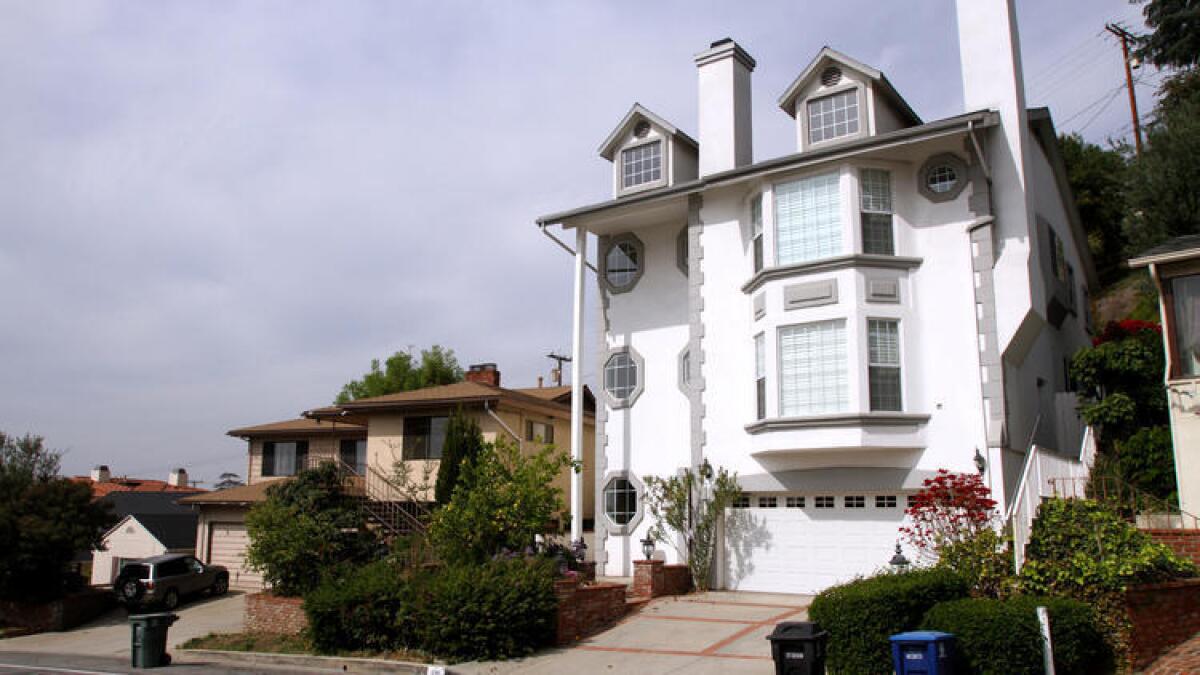City-hired attorney tells Burbank residents little can be done to prevent sober-living facilities

Neighbors have voiced concerns about the planned use of the house at 1131 E. Tujunga Avenue as a sober-living facility.
Burbank residents were faced with the sobering reality on Thursday that city officials cannot do much to prevent or regulate small group homes, including sober-living facilities, operating in the city.
More than 40 residents gathered in a meeting room at the Community Services Building and heard city officials and an attorney explain that state and federal regulations limit any actions a local agency can take against such facilities.
NEWSLETTER: Stay up to date with what’s going on in your neighborhood >>
Barbara Kautz, an attorney specializing in land-use law who was hired by Burbank in 2014 to clarify the city’s housing definitions, told residents that, in most cases, the city must treat licensed and unlicensed group homes the same way it treats single-family homes.
This is due, in part, to the federal Fair Housing Act, which prohibits housing discrimination based on disability, ethnicity or other criteria, Kautz said.
Under federal law, a disabled person is someone who is either physically or mentally impaired. It also includes recovering drug and alcohol users, Kautz said.
During the past two years, residents have expressed concerns about sober-living facilities setting up shop in their neighborhoods, fearing that recovering drug addicts and alcoholics would negatively impact their standard of living.
On Thursday, residents said they were baffled to hear that most people looking to establish a sober-living facility are not required to get a permit from the city to operate.
Kautz said that the only time such a facility would need a permit is if the group home had seven or more residents in one home.
Kautz said zoning amendments or ordinances that are aimed at controlling or preventing group homes cannot be implemented because they could be cited as discriminatory toward disabled persons and could open the city to lawsuits.
In 2015, the city of Newport Beach paid a $5.25-million settlement after a seven-year legal battle between three group homes, according to the Daily Pilot, a community newspaper in the area.
Attorneys for the facilities argued that Newport’s ordinance, which required group homes housing seven or more people obtain a permit to operate, was approved to make it nearly impossible to provide housing for recovering addicts.
Kautz said Burbank cannot restrict how far group homes are from single-family homes, limit the number of people in a group home or impose any law that specifically targets group homes.
Burbank’s main option to crack down on illicit group homes is to clarify the definitions of a single-family home, boarding house, care facility (licensed and unlicensed sober-living facilities), supportive housing and transitional housing.
The goal is it to make it easier to differentiate between a facility that is or is not operating lawfully, Kautz said.
City staff and Kautz are working on revised definitions of group homes, which will be up for review by the Planning Board at a future meeting.
--
Anthony Clark Carpio, anthonyclark.carpio@latimes.com
Twitter: @acocarpio
